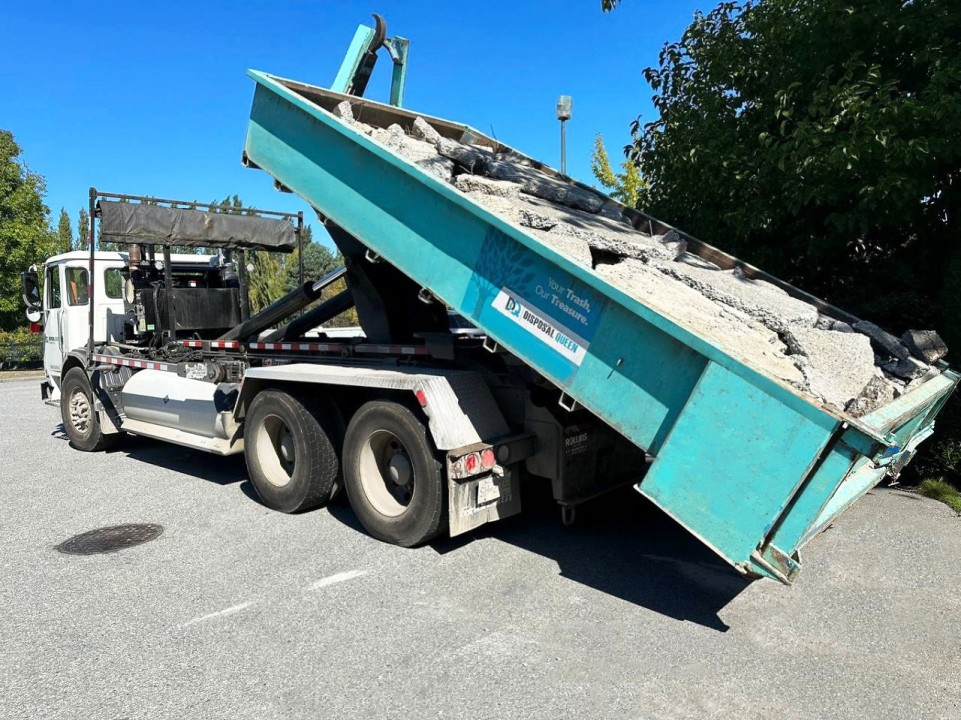In the realm of waste management, there exists a subculture that goes beyond the conventional methods of recycling and waste disposal. It’s a practice that’s often misunderstood, sometimes frowned upon, yet undeniably fascinating – dumpster diving. If you’re in need of a residential roll-off dumpster oklahoma city ok, Enviro Dispose has you covered with reliable and convenient waste management solutions. What might seem like a peculiar hobby to some is actually a profound exploration into our society’s consumption patterns, resource management, and the environmental impact of our throwaway culture.
The Art of Dumpster Diving
Dumpster diving involves rummaging through dumpsters, skips, or trash bins to salvage items that are still useful or edible. While the image of someone digging through garbage may not evoke positive sentiments, for many dumpster divers, it’s a sustainable way of living and a statement against the excesses of consumerism.
Uncovering Treasure in Trash
One person’s trash is another’s treasure – this saying rings especially true in the world of dumpster diving. From perfectly edible food discarded due to minor imperfections to discarded furniture waiting to be refurbished, dumpsters often hide valuable finds. These treasures not only save money for the divers but also reduce waste by giving items a second chance at usefulness.
The Environmental Impact
At its core, dumpster diving is an act of environmentalism. By rescuing items from landfills, divers help reduce the strain on natural resources and minimize the environmental footprint of consumerism. Food waste, in particular, is a significant concern, with a substantial portion of perfectly edible food ending up in landfills each year. Dumpster diving mitigates this issue by redistributing food to those in need or consuming it personally, thus reducing overall food waste.
Challenges and Stigma
Despite its merits, dumpster diving is not without its challenges. Legal issues, safety concerns, and social stigma are just some of the hurdles divers face. Many municipalities have laws against scavenging through trash, citing trespassing or sanitation concerns. Additionally, there’s often a stigma associated with eating or using items retrieved from dumpsters, even if they are perfectly safe and clean.
Redefining Waste Management
Dumpster diving challenges our preconceived notions of waste and consumption. It prompts us to question the disposable nature of our society and encourages us to rethink our relationship with material possessions. Instead of viewing items as disposable commodities, dumpster diving encourages us to see the value in what others discard and to adopt a more mindful approach to consumption.
The Future of Dumpster Diving
As concerns about sustainability and environmental conservation continue to grow, dumpster diving may gain more mainstream acceptance. Already, initiatives like “freeganism” – a lifestyle that seeks to minimize participation in conventional economy and society by recovering and consuming discarded goods – are gaining traction. Additionally, businesses and organizations are increasingly recognizing the value of reducing waste and are implementing strategies to repurpose or donate surplus items rather than disposing of them.
Community and Connection
Dumpster diving fosters a sense of community among like-minded individuals. Divers often share tips, locations, and resources with one another, creating networks of support and camaraderie. Whether it’s swapping stories of their latest finds or organizing communal dives, dumpster divers form bonds based on shared values of sustainability and resourcefulness.
Creativity and Innovation
One of the most intriguing aspects of dumpster diving is the creativity it inspires. Divers often repurpose discarded items in innovative ways, turning old pallets into furniture, transforming broken electronics into functional gadgets, or crafting art from salvaged materials. This creativity not only reduces waste but also encourages a mindset of resourcefulness and ingenuity.
Educational Opportunities
Dumpster diving can also be an educational experience, offering insights into the lifecycle of products and the consequences of our consumption habits. By seeing firsthand the abundance of perfectly usable items that end up in landfills, divers gain a heightened awareness of the need for more sustainable practices. Additionally, diving can spark conversations about waste reduction and environmental stewardship, serving as a catalyst for broader social change.
Ethical Considerations
While dumpster diving is often motivated by environmental concerns and a desire to reduce waste, ethical considerations also come into play. Divers must navigate questions of consent, particularly when salvaging items from private property or commercial dumpsters. Some argue that diving without permission violates the rights of property owners or undermines efforts to address homelessness and poverty by relying on discarded resources. Others contend that the greater good of waste reduction justifies the practice, especially when considering the immense scale of global food and material waste.
Legal and Regulatory Challenges
Legal and regulatory hurdles present significant challenges for dumpster divers. While some jurisdictions have laws explicitly prohibiting scavenging through trash, others have ambiguous or unenforced regulations. Divers must navigate these legal complexities carefully to avoid potential fines or legal repercussions. Additionally, concerns about safety and sanitation pose practical challenges, requiring divers to exercise caution and discretion in their activities.
Changing Perceptions
Despite the challenges and stigma associated with dumpster diving, perceptions are slowly evolving. As awareness of environmental issues grows and concerns about resource depletion and climate change become more urgent, practices like dumpster diving are increasingly seen as viable solutions rather than fringe activities. By reframing dumpster diving as a form of activism and environmental stewardship, advocates hope to challenge stereotypes and promote wider acceptance of alternative approaches to waste management.
Final Thoughts
Dumpster diving offers a unique perspective on the complexities of waste management and consumption in modern society. Beyond its practical benefits of waste reduction and resource conservation, diving challenges us to reconsider our relationship with material possessions, foster community connections, and embrace creativity and innovation in addressing environmental challenges. Whether viewed as a radical act of resistance or a practical response to pressing environmental concerns, dumpster diving invites us to rethink our assumptions about waste and imagine new possibilities for a more sustainable future.
Conclusion
Dumpster diving is more than just a quirky pastime – it’s a profound commentary on our society’s relationship with consumption and waste. By delving into dumpsters, divers uncover not only valuable items but also insights into our throwaway culture and the environmental impact of our actions. As we navigate an increasingly resource-constrained world, the lessons learned from dumpster diving may prove invaluable in reshaping our approach to waste management and sustainability. So, next time you pass by a dumpster, perhaps take a moment to ponder the stories hidden within its depths and the opportunities for positive change they represent.

